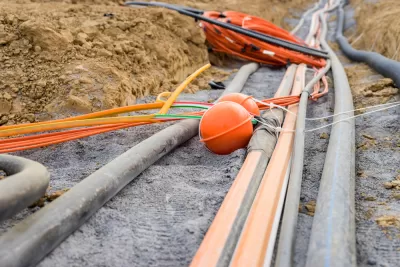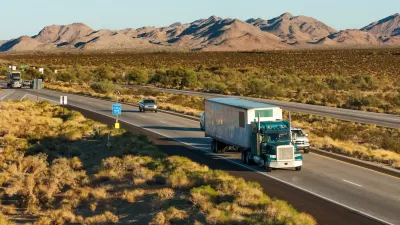Access to high-speed Internet makes a huge difference in day-to-day life. The digital divide between urban and rural communities means some rural communities could be left behind.

In many rural communities, reports Jennifer Levitz, broadband "lags behind in both speed and available connections."
Levitz begins an article explaining the rural digital divide by describing the example of Washington County, Missouri, where customers pay $170 million a month for "satellite internet service too slow to upload photos, much less conduct business." According to Levitz, "only a fraction of Washington County’s 25,000 residents, including Ms. Johnson, have internet service fast enough to stream videos or access the cloud, activities that residents 80 miles away in St. Louis take for granted."
Levitz expands the scope of this examination of infrastructure by writing that poor rural Internet is "both a cause and a system" of the "travails" of small-town America. "About 39% of the U.S. rural population, or 23 million people, lack access to broadband internet service—defined as 'fast' by the Federal Communications Commission—compared with 4% of the urban residents," writes Levitz. There are plenty of examples for how poor Internet service negatively impact equality of life, from schools to 911 dispatch centers to hospitals to the entrepreneurial efforts of private citizens.
The article includes a lot more detail on the difficulties of building-out high-speed internet infrastructure to all the rural communities around the country.
FULL STORY: Rural America Is Stranded in the Dial-Up Age

Planetizen Federal Action Tracker
A weekly monitor of how Trump’s orders and actions are impacting planners and planning in America.

Map: Where Senate Republicans Want to Sell Your Public Lands
For public land advocates, the Senate Republicans’ proposal to sell millions of acres of public land in the West is “the biggest fight of their careers.”

Restaurant Patios Were a Pandemic Win — Why Were They so Hard to Keep?
Social distancing requirements and changes in travel patterns prompted cities to pilot new uses for street and sidewalk space. Then it got complicated.

DC Area County Eliminates Bus Fares
Montgomery County joins a growing trend of making transit free.

Platform Pilsner: Vancouver Transit Agency Releases... a Beer?
TransLink will receive a portion of every sale of the four-pack.

Toronto Weighs Cheaper Transit, Parking Hikes for Major Events
Special event rates would take effect during large festivals, sports games and concerts to ‘discourage driving, manage congestion and free up space for transit.”
Urban Design for Planners 1: Software Tools
This six-course series explores essential urban design concepts using open source software and equips planners with the tools they need to participate fully in the urban design process.
Planning for Universal Design
Learn the tools for implementing Universal Design in planning regulations.
Heyer Gruel & Associates PA
JM Goldson LLC
Custer County Colorado
City of Camden Redevelopment Agency
City of Astoria
Transportation Research & Education Center (TREC) at Portland State University
Camden Redevelopment Agency
City of Claremont
Municipality of Princeton (NJ)





























